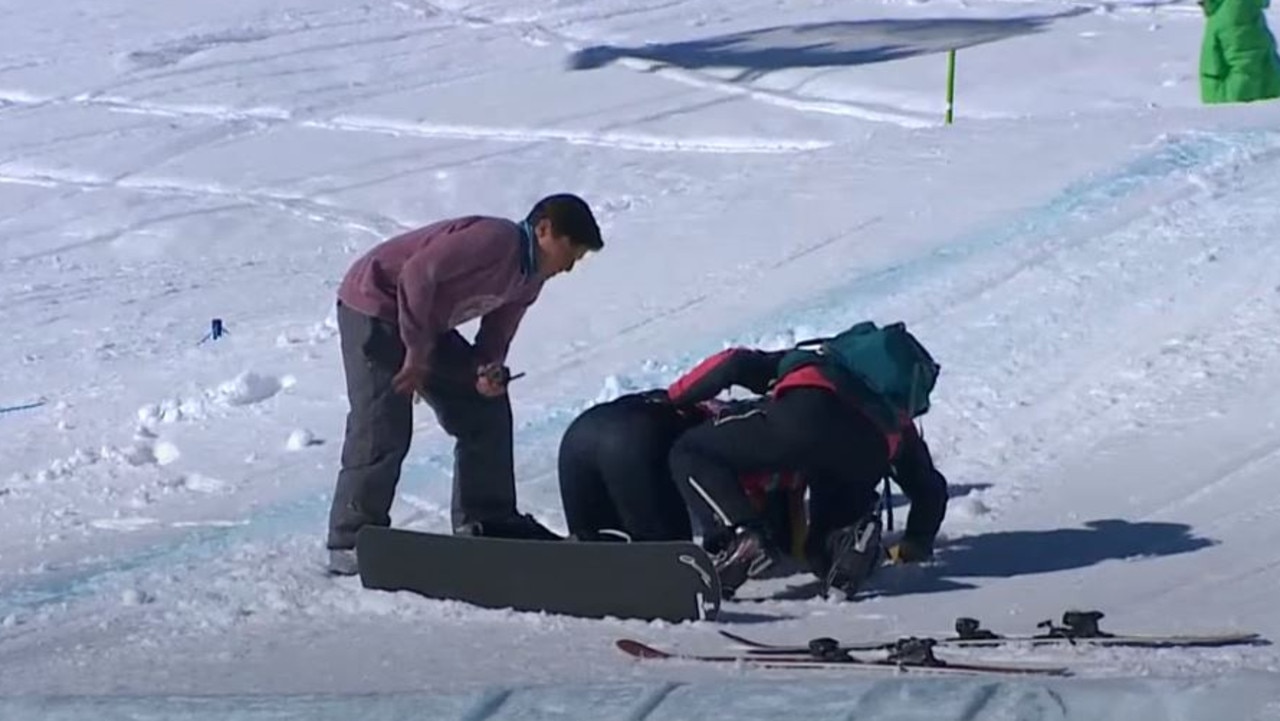Winter Olympics 2022: Beijing Games closes after sporting drama, doping and golden Gu
The Beijing Games will be remembered for new stars such as Eileen Gu but also for the doping controversy which engulfed teen figure skater Kamila Valieva.
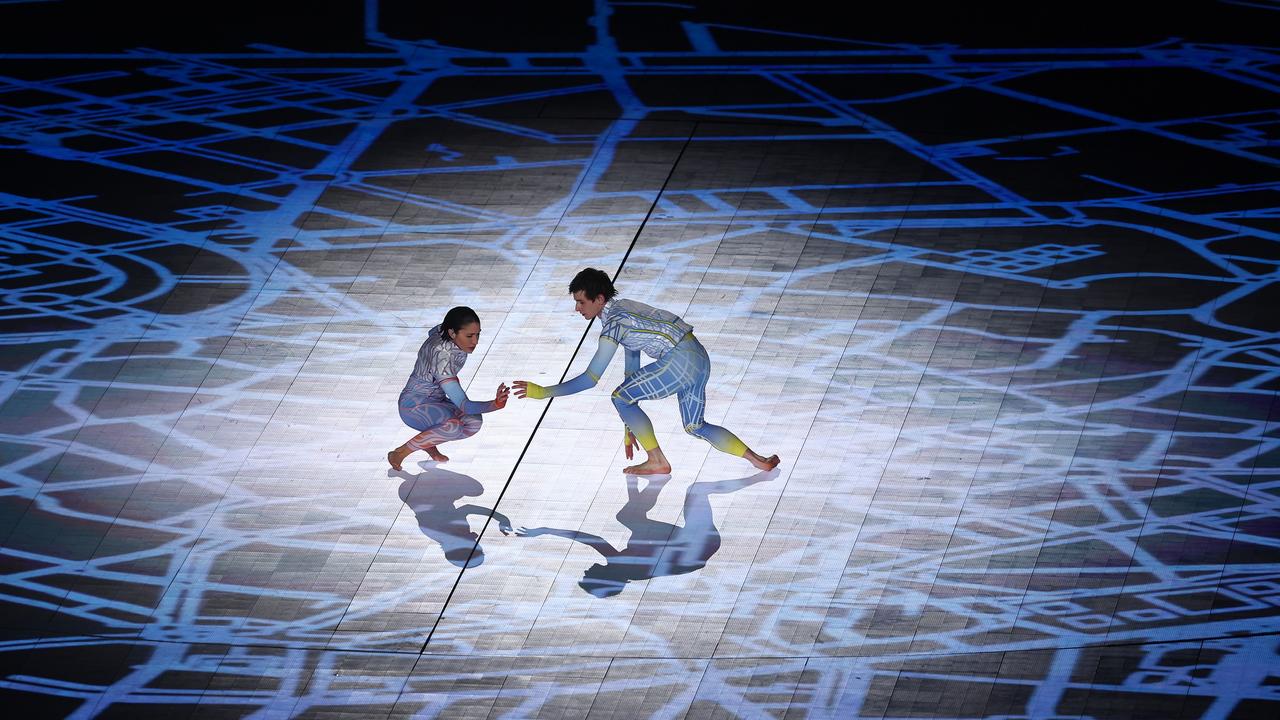
A Beijing Winter Olympics which saw sporting drama and milestones but was tarnished by a Russian doping scandal ended with an uplifting closing ceremony.
The Games will be remembered for new stars such as Eileen Gu but also for the doping controversy which engulfed 15-year-old figure skater Kamila Valieva and because they took place inside a vast Covid-secure “bubble”.
The “Bird’s Nest” stadium, which also took centre stage when Beijing hosted the 2008 Summer Games, was the scene for a celebratory, snowflake-themed closing ceremony attended by President Xi Jinping and a socially distanced crowd seated among red lanterns.
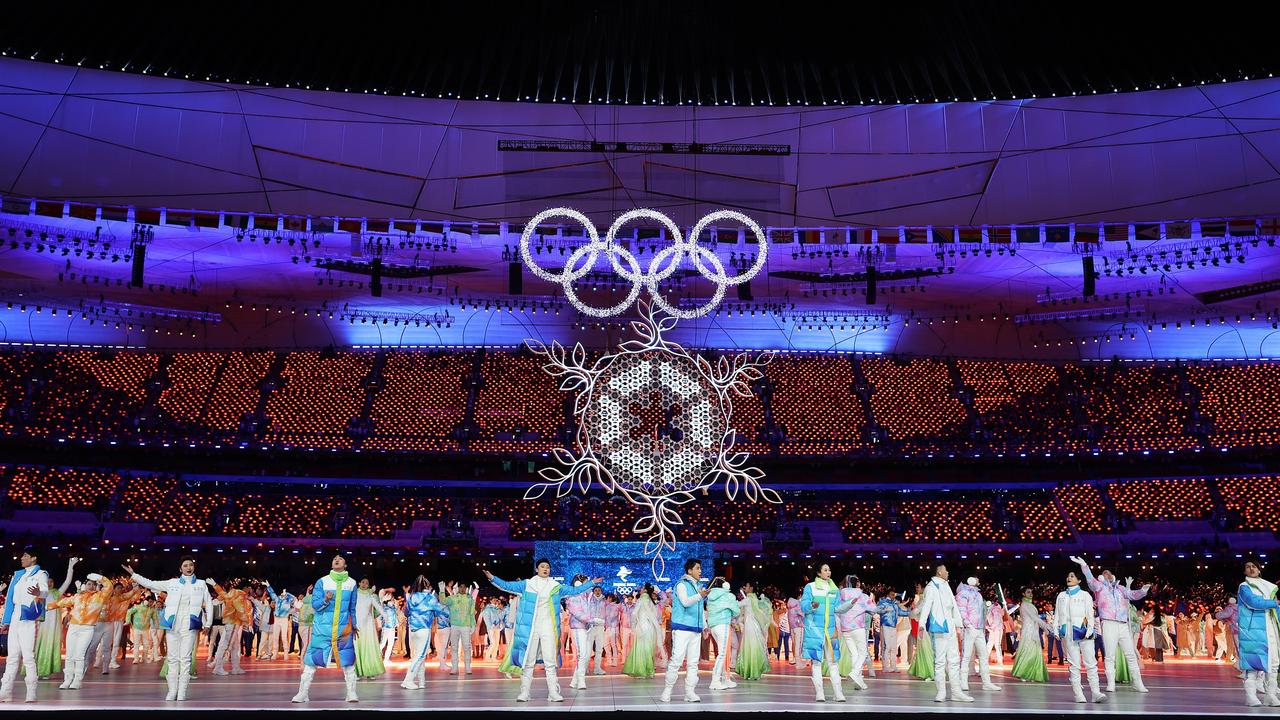
Declaring the Games closed and handing over to 2026 hosts Milano-Cortina, International Olympic Committee president Thomas Bach hailed an “unforgettable Olympic experience”.
There was no feared mass outbreak of Covid at the Games or in the wider community in the Chinese capital, but Bach said: “If we want to finally overcome this pandemic, we must be faster, we must aim higher, we must be stronger — we must stand together.
“In this Olympic spirit of solidarity, we call on the international community: give equal access to vaccines for everybody around the world.”
Fireworks lit up the night sky as the ceremony reached its crescendo, spelling out the words “ONE WORLD”.

Since the opening ceremony on February 4, a new global star emerged in the form of 18-year-old freestyle skier Gu, who was born in California but switched to China in 2019 and became the unofficial face of the Games.
There was a new men’s figure skating champion in 22-year-old Nathan Chen of the United States, who dethroned two-time Olympic champion Yuzuru Hanyu, in what could be the Japanese legend’s final appearance at a Games.
Another iconic figure of winter sports, the American snowboarder Shaun White, will definitely not return to competition of any sort after calling it quits.
The 35-year-old’s last event ended agonisingly out of the medals and he was in tears as he bid farewell to snowboarding -- “the love of my life”.
There was bitter disappointment for his fellow American, the alpine ski star Mikaela Shiffrin, one of the biggest names at the Games but who went home without a medal.
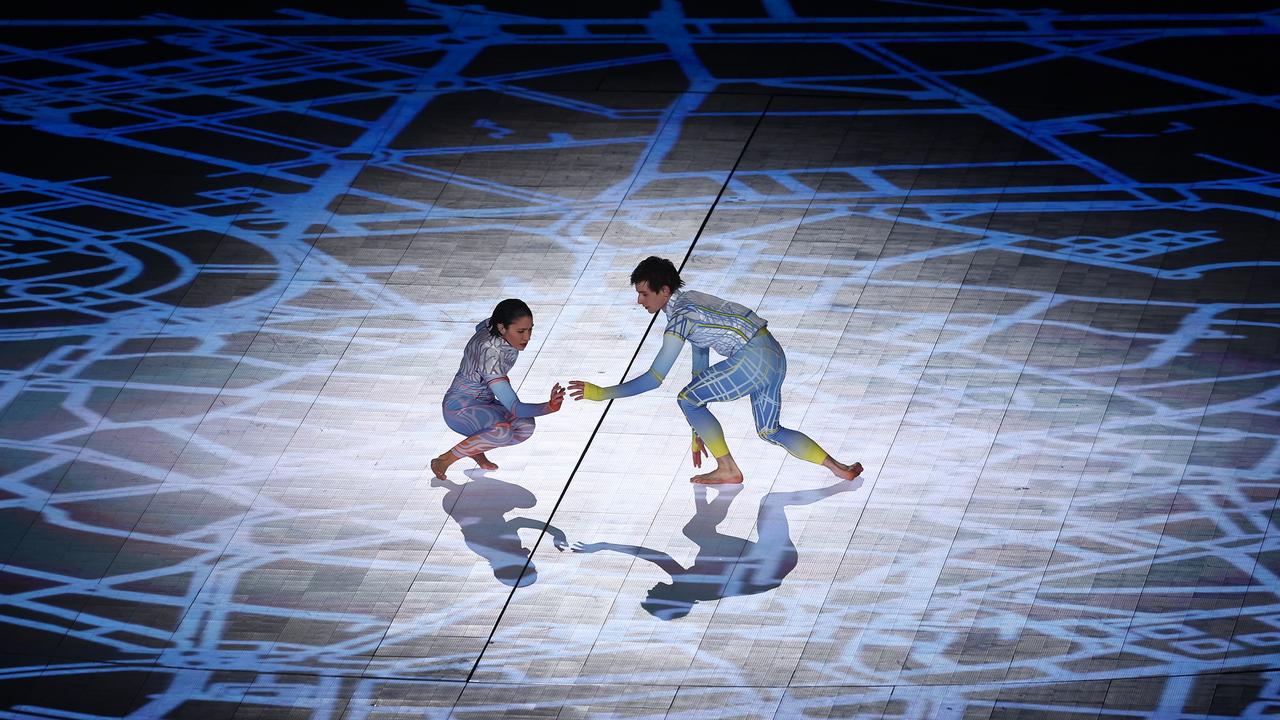
There were tears from Valieva after it emerged that she had failed a drugs test prior to the Games, catapulting her to the forefront of yet another Russian doping controversy to mar an Olympics and piling intense pressure on the teenager.
In what will go down as a notorious episode in the history of the Winter Olympics, the pre-tournament favourite for singles gold fell several times on the ice in the finals, to audible gasps from the socially distanced crowd of hand-picked spectators.
Her doping case looks certain to drag on in the coming months, long after the Games have packed up. She was allowed to skate in the Chinese capital but has not been cleared of doping.
In a Games first, the skating team medals were not awarded after Valieva played a starring role in propelling the Russians to gold, ahead of the United States and Japan.
The American skaters made an 11th-hour court bid on Saturday to get their hands on their medals before they went home, but the Court of Arbitration for Sport rejected it.

China and its ruling Communist Party will look back on a soft-power success. Fears about a mass Covid outbreak in the “closed loop” bubble sealing the nearly 3,000 athletes and about 65,000 others never materialised.
Some athletes did though catch the illness and the pandemic was never far away -- Russia and Canada’s women ice hockey teams played each other wearing medical masks after the results of their daily PCR tests failed to arrive in time.
Concerns about human rights had dominated the build-up, with the United States leading a diplomatic boycott by its closest allies over China’s rights record, especially the fate of the Muslim Uyghur minority in Xinjiang. Their athletes did however compete.
China warned in the fraught lead-up that foreign athletes criticising the authorities could face consequences, but in the end, any protests against the hosts were extremely muted.
There were numerous records — among them American bobsleigher Elana Meyers Taylor becoming the most decorated black athlete in the history of the Winter Olympics.
Snowboarder Zoi Sadowski Synnott made history for New Zealand, winning her country’s first Winter Games gold; with Gu pocketing two golds, the hosts enjoyed a significant medal bump and finished third in the medals table with nine golds.
That was easily their best performance in the Winter Games, a place ahead of chief geopolitical rival the United States, on eight golds.
For the second Games in a row, Norway topped the medals table, with 16 golds. Germany were second on 12
‘Miracle’ stroke survivor to carry Australian flag in Beijing
By Julian Linden
Stroke survivor Sami Kennedy-Sim has been chosen to carry the Australian flag at Sunday’s Closing Ceremony at the Beijing Winter Olympics.
The 33-year-old was hand picked by team boss Geoff Lipshut after reaching the semi-finals in freestyle skicross at her third Olympics.
“Sami really deserves this honour. Her commitment and professionalism goes to the heart of what this team has been about,” Lipshut said.
“In choosing Sami, I thought about her whole career. She struggled in her first Games in Sochi – she was extremely nervous, but then having two eighth placings in her next two Olympic Games.
“She has been the standard bearer for her sport – and keeping her sport going in our country. She has been putting herself out there and training really hard, travelling to all the events and being credible in what is a very tough sport.”
It’s a minor miracle that Kennedy-Sim made it to one Olympics, let alone three, after she suffered a stroke in 2013.
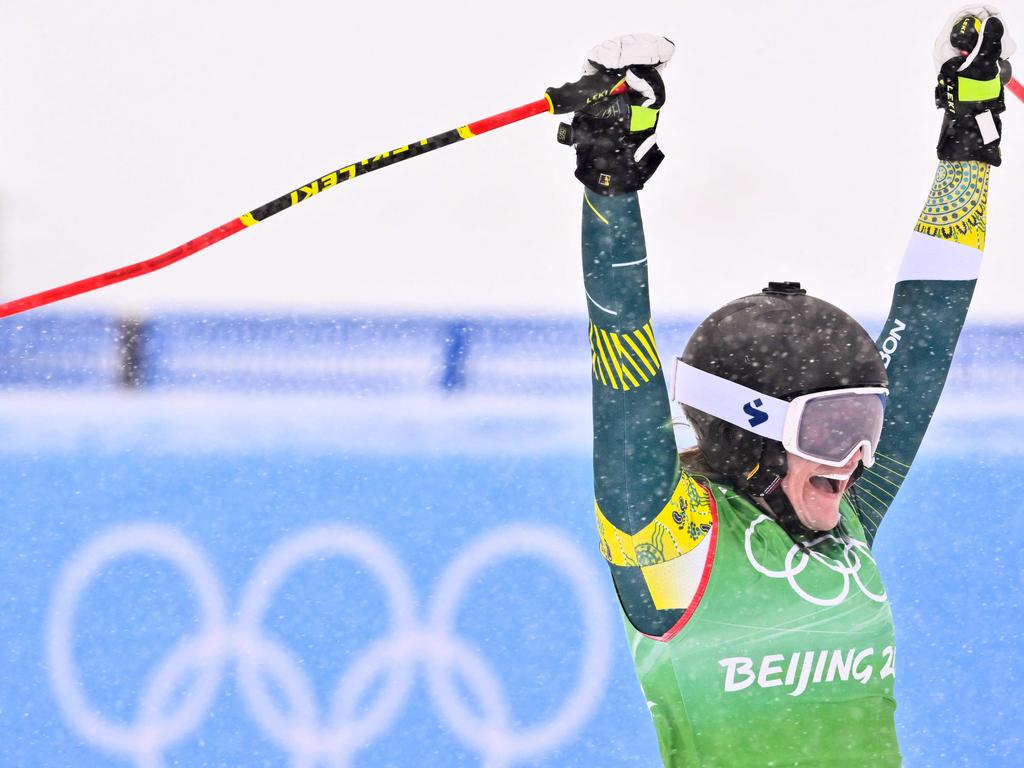
Her quick-thinking husband recognised the symptoms straight away so rushed her to hospital where she underwent heart surgery after developing a blood clot following a minor knee operation.
She has marched in two previous Closing Ceremonies and said she was surprised and honoured to be asked to carry the flag in Beijing.
“It’s something that I’ve actually dreamed about for a long time, watching athletes marching in ceremonies. To get this opportunity, it feels so special,” she said.
“What I really love about the Closing ceremony is the passing of the baton for the next venue.
More Coverage
“I found in Sochi (2014) when Korea did their show about their culture and showed us a glimpse of PyeongChang (2018) could be like, that really motivated me for the next four years.
“The same thing happened when I was sitting in that Closing Ceremony in PyeongChang to come here to Beijing.”
Because of China’s strict rules around Covid, only 10 of the 43 Australian representatives will march at the ceremony because the others have all gone home.
Originally published as Winter Olympics 2022: Beijing Games closes after sporting drama, doping and golden Gu





